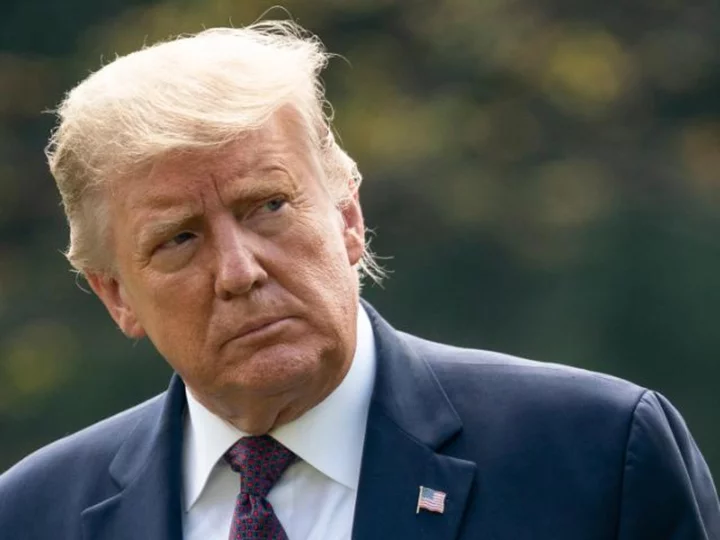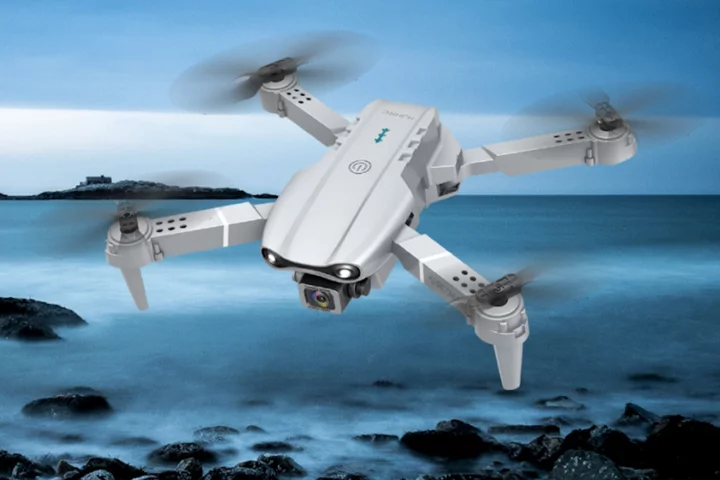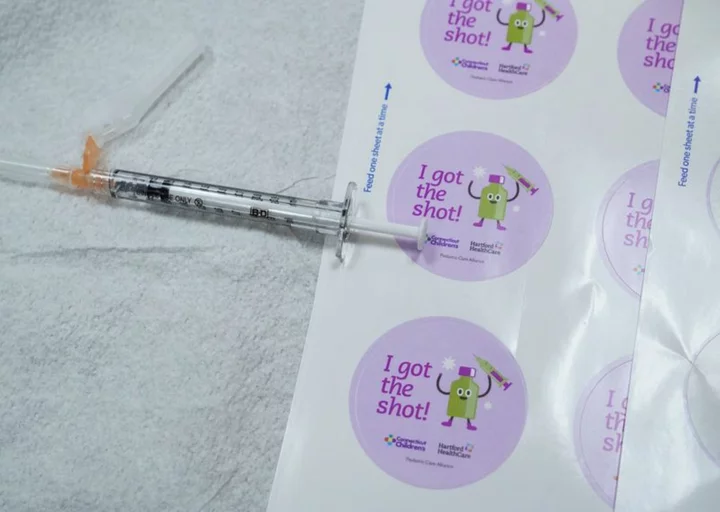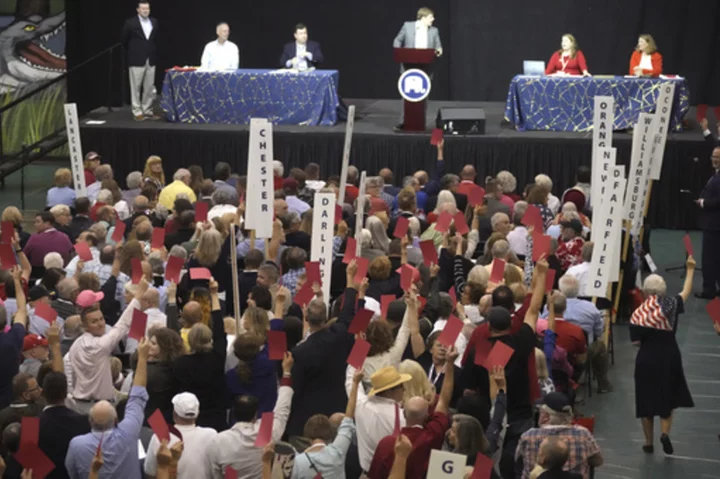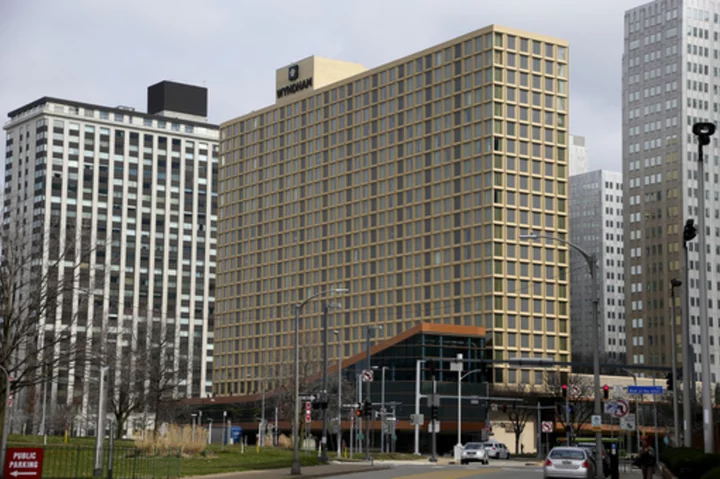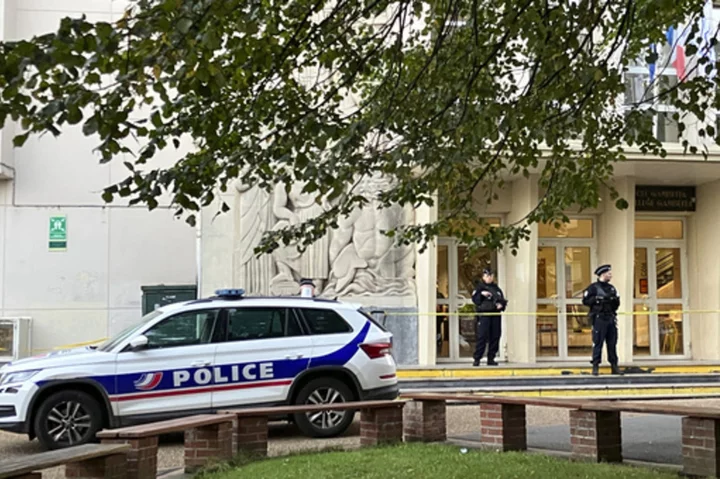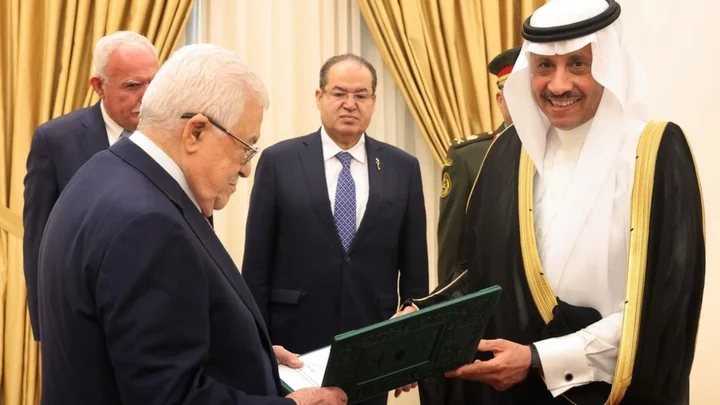Former President Donald Trump's announcement on his social media platform that he has been indicted by the US Department of Justice raised more questions than it answered.
He's been indicted on seven counts, CNN reported.
Jack Smith, the special counsel coordinating federal investigations related to the former president, has never spoken publicly about what federal prosecutors have been doing in the nearly one year since FBI agents searched Trump's Mar-a-Lago resort. And we may not know much more until next Tuesday, when Trump has been ordered to appear at a federal courthouse in Miami at 3 p.m.
Here are some of the answers we have so far:
Has this ever happened before?
No. Absolutely not. No former president has been charged with a federal crime. Neither has the front-runner for president from a major political party.
Maybe the trial of former Vice President Aaron Burr for treason in 1807 is an analog, but probably not.
We are, as is so often the case with Trump, in uncharted territory.
Another indictment? Wasn't he already indicted?
Yes and yes. Trump was indicted back in March by the Manhattan district attorney on state charges related to hush-money payments to a former adult-film star in 2016.
The new indictment involves completely different charges, brought by the federal government and related to his handling of classified documents after he left the White House.
Why isn't Trump being charged in connection with January 6 or his effort to overturn the 2020 election?
He may yet be. Smith is also overseeing other investigations related to Trump, including those regarding the January 6, 2021, insurrection and the 2020 election.
Wasn't classified material also found in President Joe Biden's home?
Yes. And there is a special counsel investigating that too.
The major difference in the Trump case is that he actively tried for around a year to keep from handing documents over to the National Archives, which owns them after a president leaves office.
What exactly is in these new charges?
We know that there are seven counts, and according to CNN's reporting, one of them is related to a conspiracy allegation.
Trump is facing a charge under the Espionage Act, his attorney Jim Trusty said on CNN Thursday, as well as charges of obstruction of justice, destruction or falsification of records, conspiracy and false statements.
There are some other things we can infer, including that people other than Trump are likely to face charges.
"All conspiracy means is an agreement between two or more people to violate the law, a meeting of the minds," said Elie Honig, a senior CNN legal analyst and former assistant US attorney, appearing on CNN Thursday night.
What laws may have been broken?
The following comes from CNN's Marshall Cohen:
Prosecutors revealed the specific statutes that they were investigating when they searched Mar-a-Lago last year, a search that uncovered dozens of classified documents, even after Trump's team swore they turned everything over.
However, that was before Smith took over the probe as special counsel, and it doesn't mean these are the only possible crimes. But it provides a roadmap of possible charges -- because when seeking the Mar-a-Lago search warrant, prosecutors needed to convince a judge there was probable cause that they'd find evidence of these crimes.
The first is 18 USC 793, which is part of the Espionage Act. That federal law deals with the illegal retention of "national defense information," a broad term that encompasses classified documents and other sensitive government materials. This law can apply to people who are authorized to handle classified information but knowingly kept the material in an unsecured location, or to people who aren't supposed to possess the information in the first place.
The second is 18 USC 2071, which deals with the illegal removal of government records from US custody.
The third is 18 USC 1519, which is obstruction of justice. This could come into play if prosecutors conclude that Trump or his aides intentionally tried to impede their inquiry -- by moving boxes around so prosecutors wouldn't find classified documents, by possibly questioning complying with subpoenas including for surveillance tapes that prosecutors believe captured the movement of the boxes, by failing to fully comply with a subpoena, or by falsely swearing that all classified files had been returned.
The FBI search was nearly a year ago. Has DOJ been sitting on these charges?
Probably not. Smith was not even involved in the case at that point. Every indication is that government lawyers have been busy building a case.
In fact, Smith has recently been using a second grand jury in Florida.
CNN has reported multiple details in recent weeks about witnesses that have appeared in recent months before grand juries. It wasn't until March that they questioned an aide who was in the room for the meeting when Trump was recorded seeming to motion to papers with classified material on his desk.
When will we know more?
Trump is set to appear Tuesday at a federal courthouse in Miami. Until then, anything we hear on the matter is likely to come from Trump.
Miami? Why isn't he being charged in Washington, DC?
Great question. CNN's Evan Perez reported Thursday night that federal officials were scrambling with the logistics of how to prosecute the former president in Miami, and he noted that there had long been an assumption that federal charges against Trump would be in Washington.
However, it does make some sense for the case to be in Florida. That's where Trump now lives most of the year, and it is also where the FBI conducted a search of Mar-a-Lago and carted away boxes containing classified material.
There are other reasons. Trump has dismissed legal setbacks in New York -- his company was convicted of tax evasion and he was found liable for sexual abuse -- with the argument that New Yorkers are politically opposed to him.
That argument will be more difficult in Florida, a state he won in both 2016 and 2020, although President Joe Biden carried Miami-Dade County.
"The fact that this is being charged in Florida is enormously significant," said Honig. "Legally, I think it's the right move by DOJ, because they're going to avoid a messy question about venue."
How long will this take? Will it be done before the election?
Unclear but unlikely. Both Honig, a Trump critic, and Robert Ray, an attorney who defended Trump in his impeachment trial, said on CNN Thursday that given that the Manhattan DA's case is already scheduled and given the length of time it takes to prosecute a federal case, it seems far-fetched that this could be concluded before the 2024 election.
What happens if Trump wins and the trial is not concluded?
It goes away, said Ray. "He would control the Justice Department ... if it's still pending, he just dismisses the case."
Will this make Republicans turn on Trump?
Be skeptical. The former president was impeached twice, tried to overturn an election, sued repeatedly, indicted in Manhattan and so much more. He's still the front-runner for the Republican presidential nomination, according to polls.
And Trump is guaranteed to drum up support based on these latest charges, all part of what he alleges is a yearslong "witch hunt."
"He could actually weaponize his campaign against these indictments," the Democratic strategist and CNN analyst David Axelrod predicted Thursday night. "I think that's what we're going see, just as we did here in New York. He is going to say, as you say, 'They're coming after us. They're trying to take our voice away.'"
What's below are answers to some questions we got after Trump's March indictment in New York that still apply.
The most-asked question is also the easiest to answer.
Can Trump still run for president while indicted or if he is convicted?
Yes, absolutely.
"Nothing stops Trump from running while indicted, or even convicted," the University of California, Los Angeles law professor Richard Hasen told me in an email earlier this year.
The Constitution requires only three things of candidates. They must be:
A natural born citizen.At least 35 years old.A resident of the US for at least 14 years.
As a political matter, it's maybe more difficult for an indicted candidate, who could become a convicted criminal, to win votes. Trials don't let candidates put their best foot forward. But it is not forbidden for them to run or be elected.
Other restrictions don't apply to Trump
There are a few asterisks both in the Constitution and the 14th and 22nd Amendments.
Term limits. The 22nd Amendment forbids anyone who has twice been president (meaning twice been elected or served half of someone else's term and then won his or her own) from running again. That doesn't apply to Trump since he lost the 2020 election.
Impeachment. If a person is impeached by the House and convicted by the Senate of high crimes and misdemeanors, he or she is removed from office and disqualified from serving again. Trump, although twice impeached by the House during his presidency, was also twice acquitted by the Senate.
Disqualification. The 14th Amendment includes a "disqualification clause," written specifically with an eye toward former Confederate soldiers.
It reads:
No person shall be a Senator or Representative in Congress, or elector of President and Vice-President, or hold any office, civil or military, under the United States, or under any state, who, having previously taken an oath, as a member of Congress, or as an officer of the United States, or as a member of any State legislature, or as an executive or judicial officer of any State, to support the Constitution of the United States, shall have engaged in insurrection or rebellion against the same, or given aid or comfort to the enemies thereof.
The indictment in New York City with regard to the hush-money payments to an adult-film star has nothing to do with rebellion or insurrection. Federal charges related to classified documents likely do not either.
Potential charges in Fulton County, Georgia, with regard to 2020 election meddling or at the federal level with regard to the January 6, 2021, insurrection could perhaps be construed by some as a form of insurrection. But that is an open question that would have to work its way through the courts. The 2024 election is fast approaching.
Could Trump vote if he was convicted?
If he was convicted of a felony at the federal level or in New York, Trump would be barred from voting in his adoptive home state of Florida, at least until he had served out a potential sentence.
Where do you find an impartial Trump jury?
As Trump is among the most divisive and now well-known Americans in history, it's hard to believe there's a big, impartial jury pool out there.
The Sixth Amendment guarantees "the right to a speedy and public trial, by an impartial jury of the State and district wherein the crime shall have been committed."
A Quinnipiac University poll conducted in March asked for registered voters' opinion of Trump. Just 2% said they hadn't heard enough about him to say.
But New York empaneled an anonymous jury in a sexual abuse lawsuit brought by the former advice columnist E. Jean Carroll.
Could Trump ever be jailed?
We're getting ahead of ourselves. He hasn't been tried, much less convicted.
The idea that Trump would ever see the inside of a jail cell still seems completely far-fetched. Hasen said the Secret Service would have to arrange for his protection in jail. The logistics of that are mind-boggling. Would agents be placed into cells on either side of him? Would they dress as inmates or guards?
Top officials accused of wrongdoing have historically found a way out of jail. Former President Richard Nixon got a preemptive pardon from his successor, Gerald Ford. Nixon's previous vice president, Spiro Agnew, resigned after he was caught up in a corruption scandal. Agnew made a plea deal and avoided jail time. Burr, also a former vice president, narrowly escaped a treason conviction. But then he left the country.
But people do routinely serve prison time for retention of classified documents, conspiracy and obstruction. We are a long way from that.
If Trump is jailed, would the Secret Service go with him?
We've gotten this question multiple times, but it seems too premature and unprecedented as to be answerable at the moment. Let's let the legal process play out. Clearly the Secret Service is responsible for the former president's safety, even if that is in jail.

